From Luxembourg to Swiss wine country: Lesser known UNESCO sites to visit in 2024
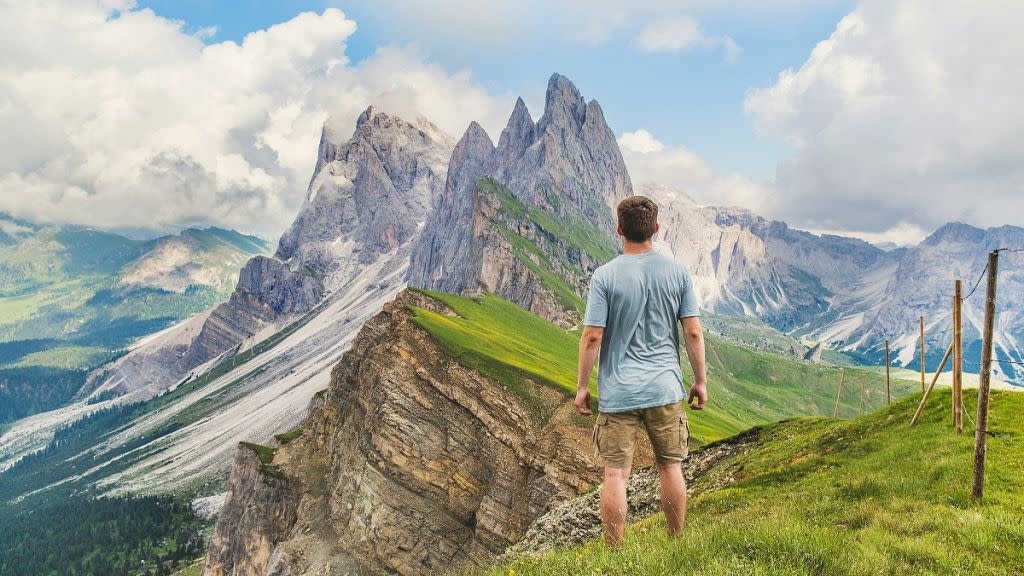
If you’re a keen traveller, you’ll no doubt have global icons like the Taj Mahal, the Great Barrier Reef and the Great Wall of China on your ‘must visit’ list.
This World Heritage Day, though, UNESCO has released a roster of less-trodden destinations to add to your agenda - and, luckily, they’re closer to home.
UNESCO - otherwise known as the United Nations Educational, Scientific and Cultural Organisation - offers protection to sites with cultural and natural heritage, recognising places of outstanding universal value.
As you plan your next European adventure, why not skip Athens’ overcrowded Acropolis and Rome’s Vatican City for places less discovered? Read on for UNESCO’s favourite alternative World Heritage spots for 2024.
Discover the perfect year-round destination in the Italian Dolomites
Set in the heart of the northern Italian alps, the Dolomites are a strikingly impressive mountain range comprising 18 peaks, rising to more than 3,000 metres.
Hundreds of millions of years ago, they were completely underwater but, today, the range features some of the most picturesque mountain vistas in all of Europe - and the wider world.
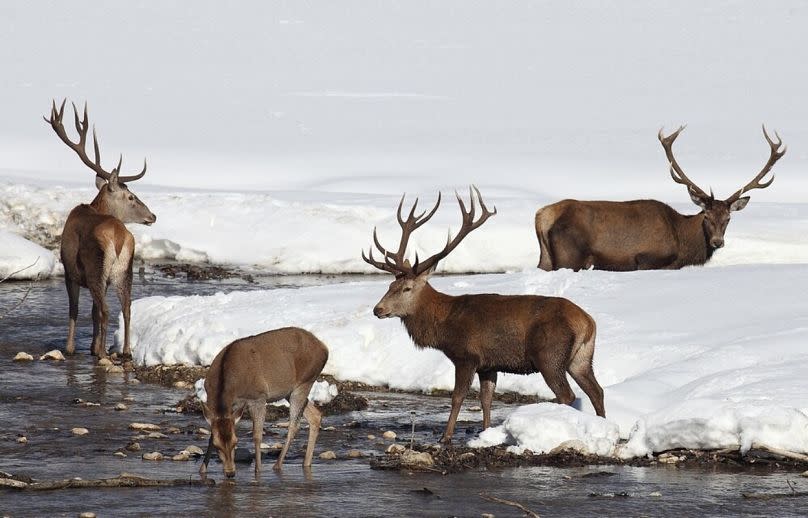
Divided naturally into nine different areas, each offers a unique landscape, ranging from impressive rock walls to glacial landforms.
In the winter, skiing and snow sports are particularly popular along with kilometres of cross-country trails - and in the summer, active visitors can hike, play golf, ride bikes and climb rock faces.
For those less keen on getting sweaty on the mountains, there are plenty of forest bathing experiences on offer, including in the picturesque Paneveggio Pale di San Martino Natural Park, so you can relax and unwind in truly serene surroundings.
Pay a visit to Luxembourg, one of Europe’s least explored countries
If you ask people to name five European countries, it’s fairly unlikely that Luxembourg will appear in the ranking.
But the micronation, situated between Germany, France and Belgium, has a lot to offer and Luxembourg City’s Old Town has actually been a UNESCO World Heritage Site since 1994.
Dating back to the 10th century, the old parts of the city are packed with treasures, like the Corniche, a viewpoint often hailed as ‘Europe’s most beautiful balcony’.
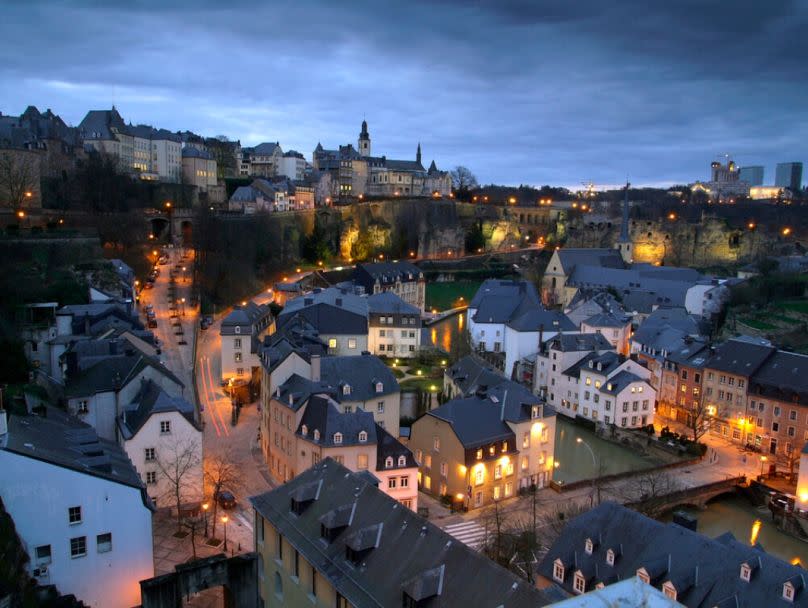
The romantic Grund district is also worth strolling through, while the magnificent Grand Ducal Palace is not to be missed.
It’s a particularly special place to visit in the summer months, when the resident Grand Duke of Luxembourg opens the doors of the caramel-coloured facade and elegant towers, welcoming in visitors keen to explore the palace’s interior.
Step inside and you’ll find gilded columns and sparkling chandeliers alongside some of the best Renaissance art in all of Europe.
Get into the heart of Viennese life at a coffee house
Vienna has been on UNESCO’s list since 2001 and is itself a very popular destination. However, relatively few visitors know that the Austrian Capital boasts a number of entries on the organisation’s intangible cultural heritage list, including its coffee house culture.
Seen by locals as an integral part of what it means to be Viennese, Vienna’s coffee houses have served as legendary meeting places throughout history for artists, intellectuals and revolutionaries, from the likes of Beethoven to Freud.
Contributing to the city's rich cultural tapestry, a quintessential Viennese coffee house features cosy booths, elegant bentwood Thonet chairs, polished marble tables and, of course, a plethora of coffee options.
What makes a coffee house more than just a place to pick up a cup of ‘Melange’ or ‘Einspänner’?
It’s the lack of pressure to order more food and drink or move on promptly and a slower pace, which allows patrons to linger for hours over a single coffee in a historic and elegant setting.
All of these venues provide newspapers for guests, which adds to the leisurely atmosphere, as well as fostering a sense of community.
In 2024, Vienna is encouraging visitors to head outside of the historic and deservedly popular city centre and into other neighbourhoods, known as ‘Grätzel’.
The city is home to some 130 traditional coffee houses but if that’s not your thing, there are thousands of other cafes available - from smart establishments to hip, laidback spaces.
Explore the ‘Hamptons of Germany’ with a trip to the Wadden Sea
Germany’s Wadden Sea is the largest unbroken system of intertidal sand and mud flats in the world - but you’d be forgiven for never having heard of it.
Despite it managing to stay very much under the radar for many tourists, the coastal wetland set in the southeastern part of the North Sea is home to a multitude of tidal channels, sandy shoals, sea-grass meadows, mussel beds, mudflats and salt marshes, as well as beaches and dunes.
Pay a visit and you may spot unusual plant and animal species, including rarely seen marine mammals like the harbour seal, grey seal and harbour porpoise.
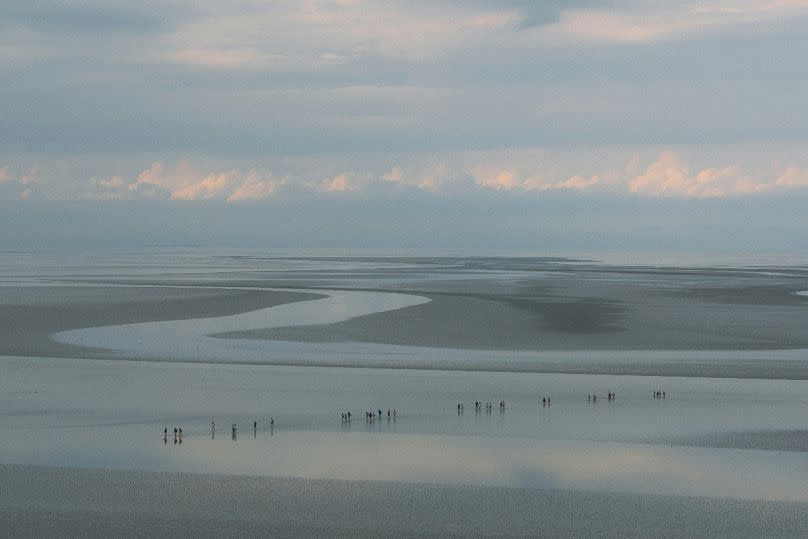
In the heart of this UNESCO World Heritage Site, you’ll come across the island of Sylt. Frequently referred to as the ‘Hamptons of Germany’, it’s the residence of some of Europe’s most astonishing flora and fauna.
The island has long been famed for its healing climate and restorative sea air - which has been proven to provide significant relief for sufferers of allergies and respiratory diseases.
It also offers 40 kilometres of fine sandy beach and three shifting sand dunes - the only ones left in all of Germany.
Sylt was included in Lonely Planet’s list of best beaches to visit in 2024 and the unique island recently featured in The Reluctant Traveller TV show, with Eugene Levy.
Get to know Swiss wine at the Lavaux Vineyard Terraces
Lausanne, a mediaeval Swiss city, has earned its reputation for being one of only 12 Great Wine Capitals of the World.
In 2007, UNESCO bestowed that honour on Lavaux vineyard terraces, which date back to the 11th century when Benedictine and Cistercian monasteries controlled the area.
Offering breathtaking views of the Alps and Lake Geneva, the terraced vineyards, stretching some 800 hectares, provide the perfect conditions for grape cultivation.
However, despite making some of the best wines of earth - think St-Saphorin, Dézaley and Epesses - Switzerland only exports around 1 per cent out of the country.
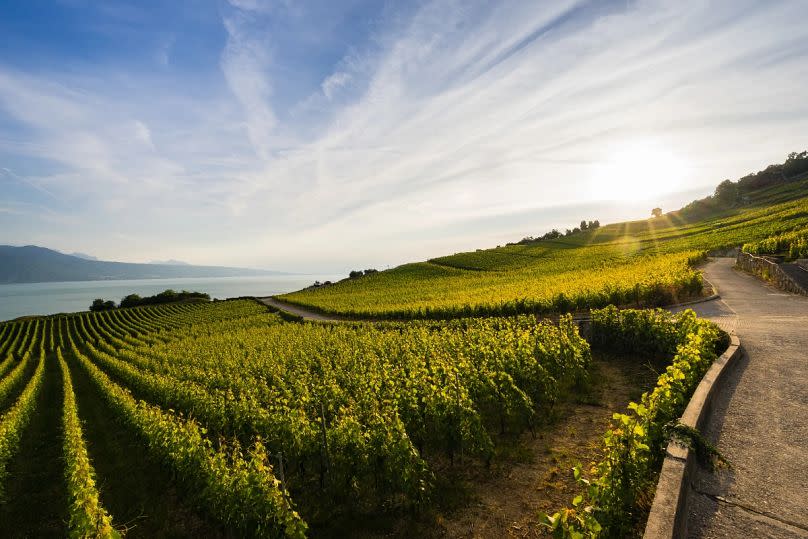
That means that a visit to Lausanne offers a rare opportunity to sample the Swiss delicacy.
If wine isn’t your thing, then why not pay a visit to Lausanne’s Olympic Museum? The city is known as the Olympic Capital of the World and has been the headquarters of the International Olympic Committee for more than 100 years.
With the 2024 Paris Olympic Games fast approaching, a trip to the museum is the perfect place to learn about the history of the iconic games.
Go underground at the under the radar Škocjan Caves in Slovenia
Although the Škocjan Caves in western Slovenia have been on UNESCO’s list from 1986, they’re certainly not a victim of overtourism.
The largest subterranean canyon in all of Europe, they have an impressive depth of more than 200 metres and consist of more than six kilometres of underground passages.
Located in the Kras region, the site is one of the most famous worldwide for the study of karstic phenomena - or, in layman’s terms, the dissolving of rocks by water.
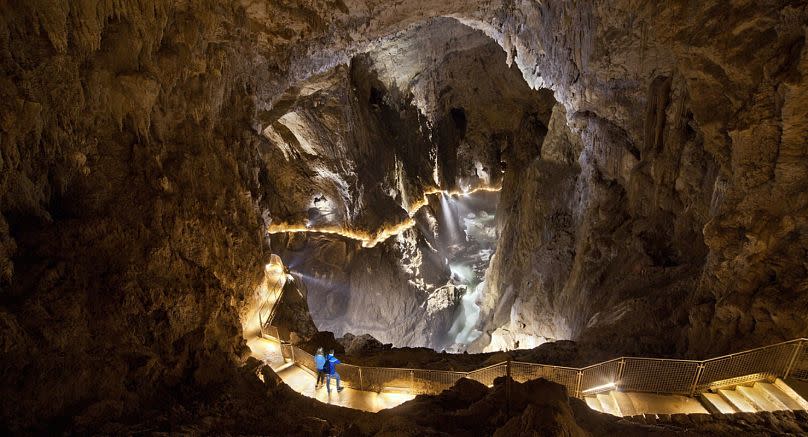
If you’re an outdoorsy person, this is a perfect trip - and one that many people simply haven’t heard of.
Take a hike along trails winding through the caves which offer glimpses of no less than 26 underground waterfalls as well as colossal stalactites and stalagmites which reach heights of 15 metres.
Karst formations sculpted by the subterranean river are surrounded by a well-maintained regional park, which preserves this natural phenomenon, also providing biking trails for endless exploration.

 Yahoo News
Yahoo News 
